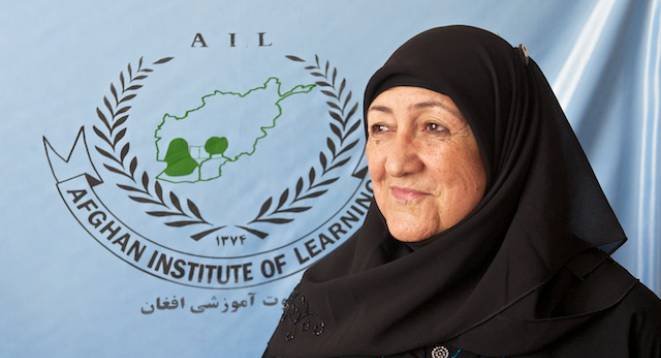Good Deals 13 preview: What books in bags of rice teach us about going against the grain

"When children want to learn, you do what you can."
Ahead of Dr Sakena Yacoobi's appearance at Good Deals, the UK's annual social investment conference, she talks to Pioneers Post about risk, resourcefulness and ingenuity in bringing education to Afghani girls in defiance of the Taliban. Her story begins with books delivered in bags of rice and schools hidden 'underground'.
How did you find yourself fighting to provide education to girls in Afghanistan under the Taliban regime?
After I finished my MPH in International Health in the US, I travelled to the Afghan refugee camps in Pakistan. There I saw the plight of Afghan women and found them desperate and depressed. Believing what Afghans needed most to transform their lives was education and good health, I founded the Afghan Institute of Learning, which aims to address the crisis of poor access to education and health services for Afghan people especially women and children.
Because we worked with the community and involved them in our work, many communities came and asked us to start girls' schools. We did and the news spread that our schools were safe, trusted and offered a good education.
When the Taliban banned schools in Afghanistan, communities that had heard of our work in the refugee camps asked us to support underground schools for girls. It was very dangerous but the teachers used their own homes and the communities supported the schools and, as word spread, we were asked for support by many other communities.
It was very difficult because if the schools had been discovered, the teachers and the students would have been punished and possibly killed. But the teachers and the girls wanted to study and their families supported the desire for education so we sent books to them in bags of rice and found ways to send the salaries of the teachers. In some communities we even opened libraries.
When children want to learn, you do what you can.
How difficult is it for women to adopt a leadership role when societal and cultural norms still limit women's right to education? What can pioneers of social finance going against the grain learn from that?
It is difficult but what I have learned is that when you respect the tradition and culture of the people that you are working with and work with them to find a way to achieve their goals, you can be successful and safe. When people respect and trust a leader it doesn’t make any difference if she is a woman or a man.
I think it is important to do high quality work and also have good values and ethics. When you are an ethical person that does high quality work, it is not difficult to be respected.
But I also think that you need to look at the environment that you are working in and work with the people and try to find commonality. This is what we do at the Afghan Institute of Learning. We find ways to work with people for what we both believe in. This kind of approach works in any environment, even in finance and investment.
What can changemakers at Good Deals facing diverse constraints learn about sustaining a social mission from your experiences providing education for girls in challenging social, political and cultural contexts?
What we have found at the Afghan Institute of Learning is that diverse groups, rural communities and urban communities, the poor, the rich and the government often have the same ultimate goals.
In Afghanistan, we work with many different groups. Most people in Afghanistan want education for their children and they want to be healthy and have a good life. We've found that working together with the various groups and finding ways that we can all agree on to have an education, or good health, or receive skills training
has been successful.
Sometimes people who work with civil society members from governments and donors to NGOs and social activists want to do their best and they do try and work with the community, but they have their own ideas and they may think they are better. They use their ideas, not those of the community and it doesn't really meet the community's needs so it isn't very successful or self-sustaining. We think it is important to really listen to people, respect their ideas and work with them until there is truly a solution that everyone can agree with and that then works for the community.
Sometimes funders want us to do something their way and we don’t think it will work. So we do not apply for that funding. We look for donors who have the same vision and concepts that we have. Working together with donors, communities and government we find ways to be successful and sustainable.
The same concept can be applied to grant funders and social investors. Both the implementing organisation and the social investor or donor need to be in agreement on their vision and concepts of how to do the work ... to be a change agent for long-term impact while working in complete cooperation with the community.
Dr Sakena Yacoobi will be speaking on day 2 of the Good Deals 2013 social investment conference which takes place in London, UK, on 6-7 November.
A few tickets still remain – you can get further details about tickets and on what else is on at Good Deals here.
Twitter #gdeals13.
